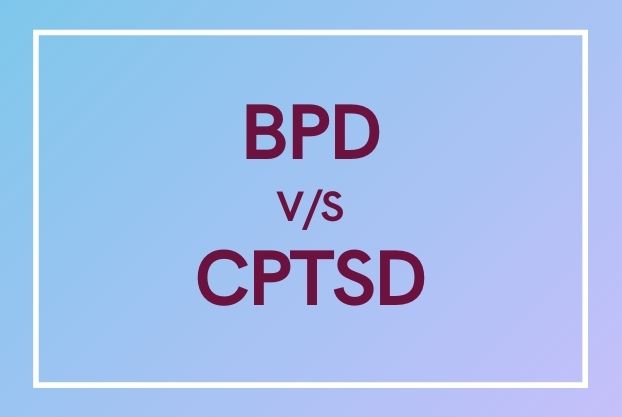Complex Post-Traumatic Stress Disorder (CPTSD) is still gaining recognition in clinical settings, making it harder to diagnose and treat effectively. It’s frequently misidentified as Borderline Personality Disorder (BPD) due to overlapping symptoms like emotional dysregulation and unstable relationships. However, CPTSD—often rooted in prolonged trauma like childhood abuse or captivity—differs in its core causes and requires a distinct therapeutic approach.
A 2023 study in The Lancet Psychiatry reported that over 60% of CPTSD cases are initially misdiagnosed, delaying effective treatment and recovery.
TRIGGER WARNINGS: mentions of child abuse, suicide, self-injury, war, torture, kidnapping
What is BPD?
With BPD, you might see patterns of instability in your relationships, struggle with self-image and identity, and be very impulsive. For a BPD diagnosis, you would have to show five out of nine of these symptoms:
- Fear of abandonment
- Instability in relationships
- Unstable sense of self- this could include frequently switching jobs, breaking up often and moving on quickly, doing things on a whim, and basically being in a constant state of change
- Impulsive- this could often mean that you utilize self-destructive behavior
- Recurrent suicidal behavior, gestures or threats, or self-injurious behavior
- Extreme mood swings
- Chronic feelings of emptiness- questioning the worth of actions, yourself as well as whether people care at all
- Inappropriate, intense and explosive anger
- Feeling suspicious of people and situations- often out-of-touch with reality
What is CPTSD?
CPTSD is a result of repeated trauma from abusive childhoods, war, torture, kidnapping or any prolonged traumatic event. Those suffering from CPTSD often have more difficulties in relationships in comparison to those with PTSD. The symptoms include, but are not limited to:
- Emotion regulation
- Losing memory of traumatic event(s) completely
- Skewed sense of self- you might feel ashamed or guilty for struggling
- Distorted perception of perpetrators of trauma- some patients end up caring for and even loving the person who harmed them
- Lack of trust in your relationship with others
- Own sense of meaning- you might feel hopeless and struggle to have any faith in people or life
The treatment for CPTSD is similar to that of PTSD but there is more focus on the interpersonal aspect- this means there is an effort to build trust and manage feelings of shame and guilt instead of lashing out as a reaction.
What are the key differences between BPD and CPTSD?
The overlapping symptoms often means that a misdiagnosis takes place. A study in 2018 showed that 24% of those with PTSD also have BPD, while 30% with BPD have PTSD. Since the method of treatment differs, it is important to identify as accurately as possible.
The key differences between the two are:
- CPTSD is a result of repeated trauma while BPD does not require a traumatic event to be diagnosed.
- BPD is accompanied with a sense of abandonment while CPTSD is not.
- Both- patients with BPD and those with CPTSD- struggle with emotion dysregulation and while there is some overlap, the dysregulation is different for both. Those with BPD tend to keep anger in- this means that they lean towards self-injurious behavior and it is common for them to struggle with suicidal thoughts. Those with CPTSD tend to lash out. They show emotional sensitivity and poor coping skills, and are more likely to struggle with substance abuse and addiction.
- The treatment plans vary- those with BPD need to confront and manage their self-injurious behavior and learn how to manage their emotions better. Meanwhile, those with CPTSD are urged to go through their traumatic events and process it and, subsequently, work on healing from it.
As an organization, Another Light does not tend to “diagnose” per se, as symptoms can often blend into each other. Some with CPTSD may show traits of BPD, but that might not mean it is indeed BPD. It is important to have an informed therapist- preferably a trauma therapist- to understand these differences and create a treatment plan accordingly. Another Light specializes in trauma-informed therapists who provide a safe space for you to process and heal.

